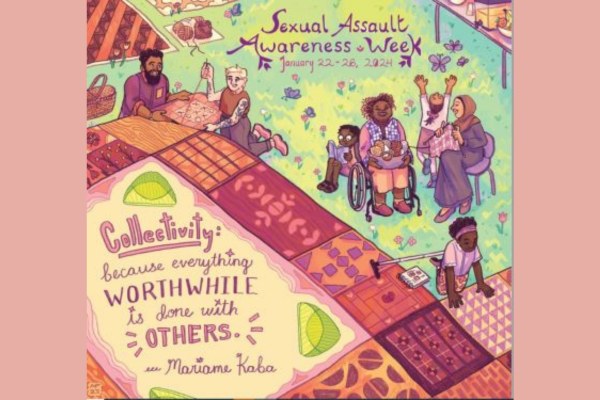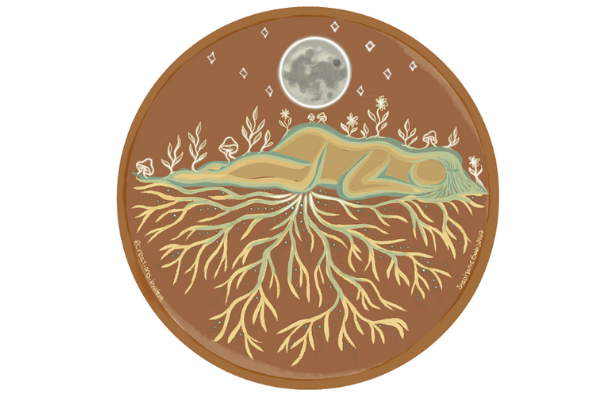Passing the one-year mark of the pandemic in January was a hard milestone, reminding us of how long we have been in this and how much has changed since we started.
Now, more than ever, it is important to keep working on our mental and physical health, especially in the times that our province or city is in a lockdown. The public health actions, such as social distancing or lockdowns, are necessary to reduce the spread of COVID-19 – but they are also the cause of people, especially students, feeling isolated, alone and very stressed. It is important to remember that while we might not be able to physically see our friends and loved ones, that doesn’t mean that we are alone or that we can’t use all the necessary tools to “see” each other.
During the pandemic there are a few things that you can do to help relieve the feeling of isolation, as well as reduce any stress that you might have.
Exercise
Exercising is a very important factor that contributes to how you are feeling mentally and physically. Physical activity can reduce the risk of serious health problems, such as diabetes, and can even affect your mind. As you exercise, blood is pumped into your brain, which helps you think more clearly. You also increase the size of the hippocampus, which is the part of the brain that is responsible for memory, and you increase the connections between the nerve cells in the brain. This improves your memory and helps protect your brain against injury and disease.
Exercise also affects our mental health. As we exercise, we release chemicals like endorphins and serotonin that improves your mood, making you feel less isolated and alone. If you exercise regularly, you can reduce stress and help with recovery from mental health issues. Exercise can also improve your sleep, which is important in so many different ways.
Exercise makes you feel good about yourself and helps you feel productive, and if you are currently living in Ottawa, going skating on the Rideau Canal is a great way to get outside and get some exercise.
If all you accomplish today is exercising for 30 minutes, I would say that you had a very successful day.
Take a Break
During the day it is important to take a break from school, homework and listening/reading the news. It is encouraged to step away from constantly reading the news, with all the different COVID-19 updates that are constantly coming out, as it can continue to add to your stress.
Relax and de-stress by doing an activity that you enjoy such as reading, knitting, baking, playing video games, stretching your body with some yoga or meditating. My favourite thing to do when taking a break is making a big cup of tea and sitting in my living room reading a book. I find getting away from screens helps me with any headaches or exhaustion that I am feeling and moving away from my room helps me relax more without the constant pressure to do work that is associated with my desk in my room.
As well, I find that taking a break from school and homework can help me go back to my assignments and classes with fresh eyes and an awake mind.
Visit with Friends
Just because we have to social distance doesn’t mean that we can’t still see our friends, we just need to find unique ways of doing so. Some great tools to visit with friends are FaceTime and Zoom, which you can also use to watch a movie with friends, play online games or just chat.
Once or twice a month a group of my friends like to get together on Zoom to play a bunch of online games. Being on Zoom while playing the online games helps us feel like we are hanging out in-person again since we are able to see each other’s faces.
Healthy, Regular Meals
It is important for both your physical and mental health to eat healthy, regular meals throughout the day. Eating healthy, consistent meals helps your brain function properly and reduces the risk of physical health problems. It can also help with sleeping patterns, energy level and your general overall health.
You may notice that after having a meal your mood is affected. This often reflects the types of food you choose as well as how much you eat. Some foods can lift your mood, energy levels and concentration, while others can have the opposite effect.
Eating lots of fresh fruits, vegetables, nuts and whole grains can reduce your risk of some mental health conditions such as depression, while eating foods that are high in sugar and saturated fat may increase your risk. While it is important for your mental and physical health to eat healthy meals, that doesn’t mean you need to cut out all of the foods that are high in sugar and saturated fats – you just need to be careful how much of them you eat and make sure the rest of your meals are well balanced.
There is also a common misconception that eating healthy is expensive, and as students we just can’t afford that. This is inaccurate; as long as you do it properly, eating healthy shouldn’t be very expensive.
Check out Carleton University’s Dining Services Blog “Eating Healthy on a Budget”.
Puppies
That’s right, puppies. Nothing can affect your mood more and make you feel better than puppies. And everyone remembers the delight that you would experience when you saw one of Carleton University’s therapy dogs walking towards you on campus – and fear not, you can still get that same experience!
Carleton’s therapy dogs are still here to help us de-stress at times that we might feel overwhelmed with both Virtual Hours (on a schedule) and live sessions on Instagram – just follow @cutherapydog! And don’t worry about missing the live sessions – they are recorded and stored in their IGTV.
Recent Quote the Raven Posts
Read the latest from our student Bloggers











 Ask Me
Ask Me